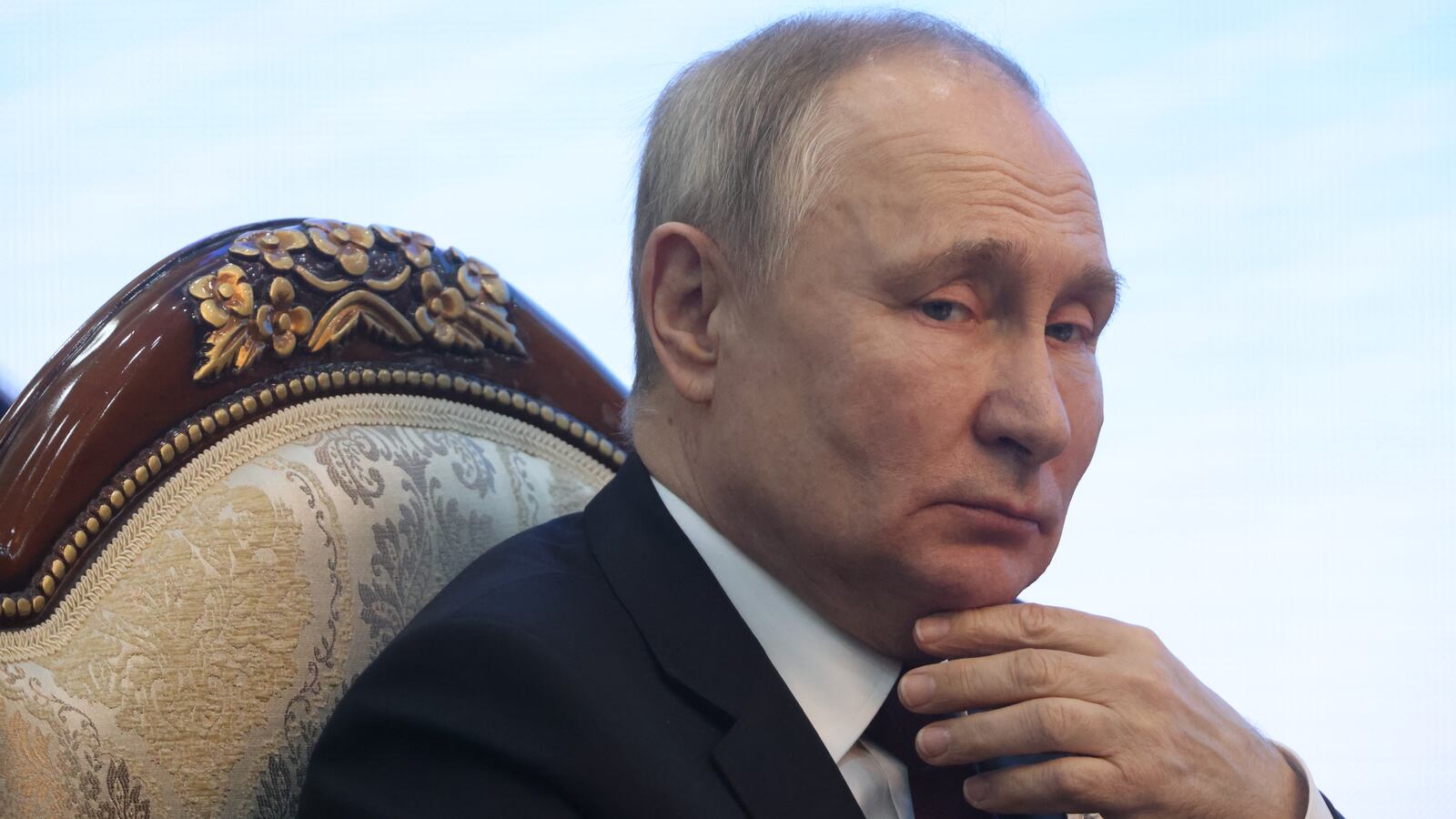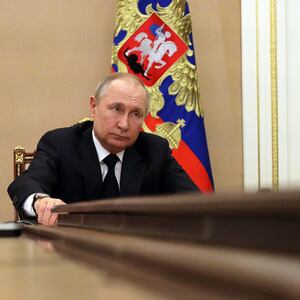Russian President Vladimir Putin will likely not be making his annual address to the Federal Assembly of Russia this year as his war plans in Ukraine continue to crumble.
“The message should be held once a year, and the countdown starts from the previous message. Therefore, the message can take place as early as next year… I believe that this year it will no longer be,” a source in parliament said, according to TASS.
Kremlin Spokesperson Dmitry Peskov confirmed the news.
“As far as the message is concerned, is it possible to send a message next year, it certainly is possible. This is such a fairly obvious truth,” Peskov told reporters.
It’s just the latest instance of Putin shying away from the public eye while his war in Ukraine falters. The Kremlin has also opted to cancel Putin’s annual press conference for the first time in ten years, and Putin postponed a crucial military meeting with top military representatives after major battlefield losses in Ukraine in September.
News of the potential delay coincides with reports that the Kremlin has been urging officials “not to upset” Putin with questions about the war in Ukraine.
The event is meant to allow the president of Russia to share the status of the country and lay out plans ahead for the new year on both domestic and foreign policy, according to the Russian constitution.
It would be the first time the address is postponed in five years. In 2017, Putin delayed the delivery of the message to March 2018.
But with the lack of progress in Russia’s war in Ukraine, the appeal of a public assessment on foreign policy objectives appears to be waning.
Ukraine conducted multiple counteroffensives this fall to kick Russia out of territories seized since February. In some cases, Russia has been open about fleeing areas it had to abandon when Ukraine’s counteroffensive kicked off. Early last month, Russian authorities announced they were likely leaving Kherson, Russia’s only stronghold west of the Dnieper River at the time, days before Ukraine liberated the strategically important city.
The Kharkiv operation came as a surprise to Russian leadership there, leaving Russians outnumbered eight to one and with no choice but to retreat. Now, Russia is dug in on defense in the Zaporizhzhia and Kherson directions and vulnerable to Ukrainian efforts to cut off their supplies or squeeze in on them.
On top of all of the losses, Russia’s military logistics are floundering, and some of Putin’s key allies have been sniping about his decision-making in recent weeks.
The way the war is going in Ukraine has factored into previous decisions to cancel Putin’s other public appearances, according to RBC.
On the domestic front, support for Putin’s war is dipping as well. A growing percentage, 31 percent, of Russians support engaging in peace negotiations over continuing the war, according to a Chicago Council-Levada Center survey conducted in November.






